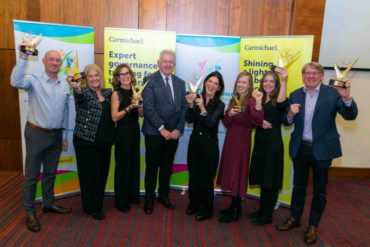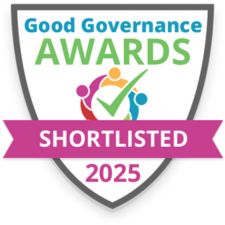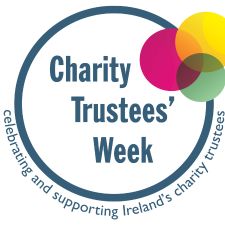Target Audience
This course will be beneficial for anyone needing a better understanding of the Companies Act 2014, Charities Act 2009 and Charities Amendment Act 2024 for organisations in the not-for-profit sector.
Outline
This course will explore the implications of The Companies Act 2014 for Companies Limited by Guarantee (CLG), charity trustee obligations under the Charities Act 2009, the related reporting and compliance obligations set out by the Charities Regulator, and the key provisions of the Charities Amendment Act 2024.
Methodology
Delivered virtually via Zoom.
Target Audience
CEOs, Finance Managers and Board Members of Charities.
Outline
- Overview of Charities (Amendment) Act 2024
- Introduction to Charities SORP 2026
- Overview of FRS 102 Charities SORP and reporting framework
- Structure and content of Trustees’ Annual Report and Accounts
- Fund accounting and types of charity funds
- Income and expenditure recognition (including grants and donations)
- Reserves policy and financial governance expectations
- Preparing for transition to the new SORP in 2026
Methodology
Delivered virtually via Zoom.
Target Audience
CEOs, Finance Managers and Board Members of Charities.
Outline
- Overview of Charities (Amendment) Act 2024
- Introduction to Charities SORP 2026
- Overview of FRS 102 Charities SORP and reporting framework
- Structure and content of Trustees’ Annual Report and Accounts
- Fund accounting and types of charity funds
- Income and expenditure recognition (including grants and donations)
- Reserves policy and financial governance expectations
- Preparing for transition to the new SORP in 2026
Methodology
Delivered virtually via Zoom.
Target Audience
All board members and trustees who wish to be better equipped to ensure effective financial oversight of their organisation.
Outline
The board has responsibility for the financial oversight of the organisation and as such, individual board members need to be able to understand the financial statements presented to them. This course will seek to demystify the jargon surrounding financial statements to give you the skills and knowledge to be able to read and understand them, identify areas of concern within them and ask questions and follow through on those concerns to ensure you fulfil your oversight responsibilities.
Methodology
Delivered virtually via Zoom.
Target Audience
Anyone who has responsibility for preparing budgets and those who wish to understand them better.
Prerequisites
Participants should be familiar with Microsoft Excel basics. Laptops will be provided by Carmichael for the training session.
Outline
This course will help you to understand how to prepare a budget and how to use that budget as a tool to effectively manage the resources of your organisation. We will work through a number of examples using Microsoft Excel – participants are limited to 10 to allow maximum interaction.
Methodology
In-person training, in Carmichael Centre, Dublin 7.
Target Audience
Those who are responsible for keeping the financial books and records of the organisation.
Outline
Ensuring accurate financial record-keeping is a fundamental part of any organisation. This course will seek to explain the accounting cycle and the role of bookkeeping within that cycle including a discussion on the key books and records your organisation needs to keep to ensure it is fully recording its financial transactions.
Methodology
In-person training, in Carmichael Centre, Dublin 7.
Target Audience
For those who’d like to learn the basics of time management and anyone needing to make the most of their time in a busy work environment.
Course Outline
The psychology of time management
- Self awareness of your own time management skills
Arrange and prioritise tasks
- How to prioritise
- What are your time wasters
- The advantages and disadvantages of multi-tasking
Strategies to improve time management
- Urgent vs non urgent
- Focus
Other tips
- Managers need to be aware too
- Effective communication and time management
- Stress management
Methodology
Delivered virtually via Zoom.
This course will be delivered again on 15th May.
Target Audience
This 2 hours’ session is aimed at people who have no experience of using Canva, or graphic design. Basic IT skills are required for this introductory course.
What is Canva?
Canva is a free-to-use online graphic design tool. Use it to create social media posts, presentations, posters, videos, logos and more.
Course Outline
- Opening and creating a Canva account
- Canva for Non-Profits
- Creating a design; using templates or creating from scratch
- Searching and editing elements
- Using template photos from Canva or uploading
- Adding text and using different fonts
- Saving and downloading designs
- Sharing and collaborating designs
- Design for Print
- Managing your Brand
Methodology
Delivered virtually via Zoom.
Target Audience
Anyone wishing to learn how to use Microsoft OneNote. Microsoft OneNote is a digital notebook that’s part of Microsoft 365 and can be used to capture, organise, and find information from any device by creating digital notebooks.
Outline
- Creating and organising Notebooks
- Adding and managing content
- Integrating with other tools
- Collaboration and sharing
- Security and backup
Methodology
Delivered virtually via Microsoft Teams. This session will be recorded and the recording will be circulated to participants on completion.
Target Audience
Managers and staff, responsible for data protection of charities and not-for-profits.
Outline
This training course is designed to engage management and staff of charities & non-profits, helping them understand the requirements of the GDPR and how to become compliant with a set of policies and procedures. These are presented in a practical and accessible manner, with templates provided to the attendees
1. The fundamentals of the GDPR
- The key principles of the GDPR
- Legal basis for processing
- Data Subject rights
2. Required policies, procedures, and records
- Data Protection Policy
- Data Protection Officer needed – Yes/No?
- Data Inventory
- Data Retention Policy
- Information Security Policy
- Records of Processing Activities (ROPA)
- Data Protection Notice for website (privacy statement)
- Procedures for handling individual’s rights
- Data breach handling procedure
- CCTV Policy (may be optional)
3. Other requirements (e.g. Data Protection Impact Assessments – DPIA)
Methodology
Delivered virtually, via Google Meet. A copy of the slides will be provided as well as a link to download the templates.




